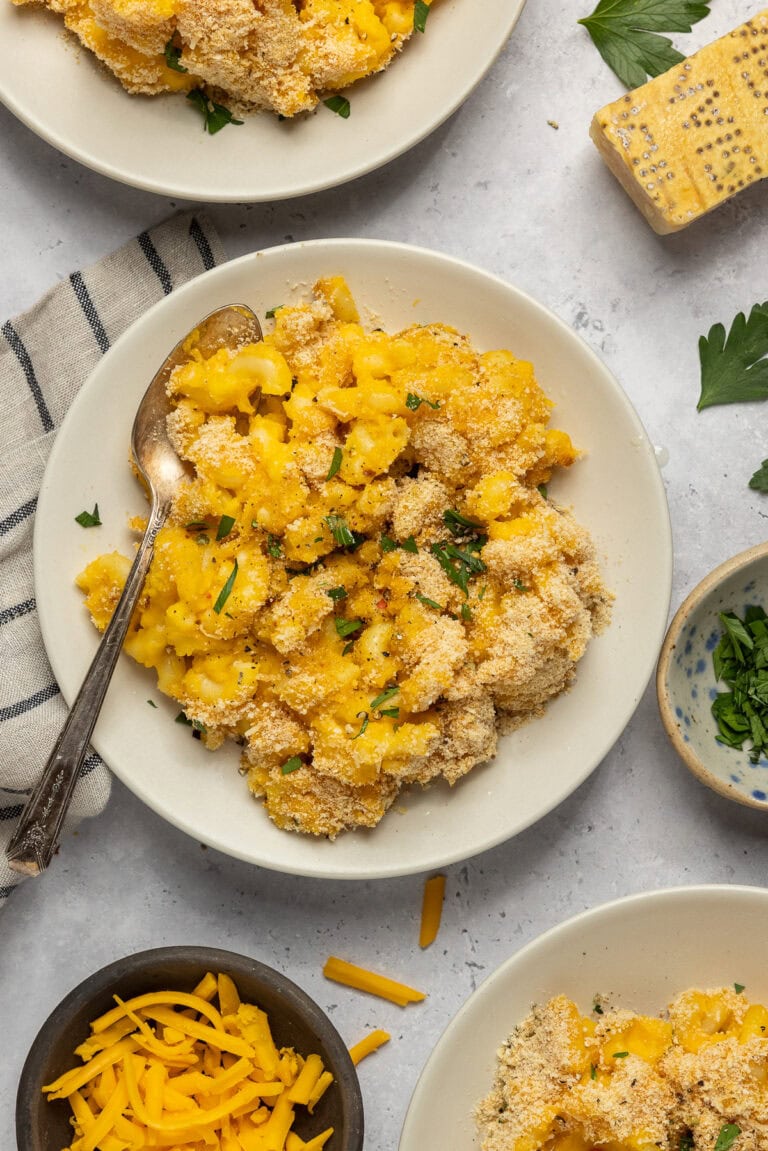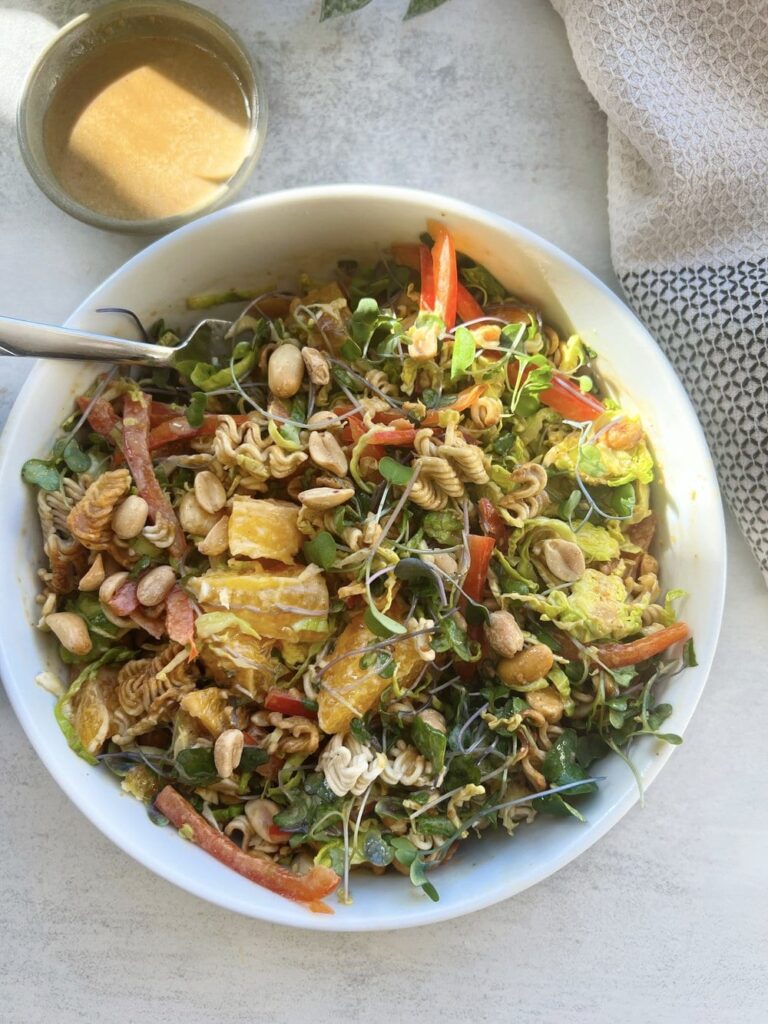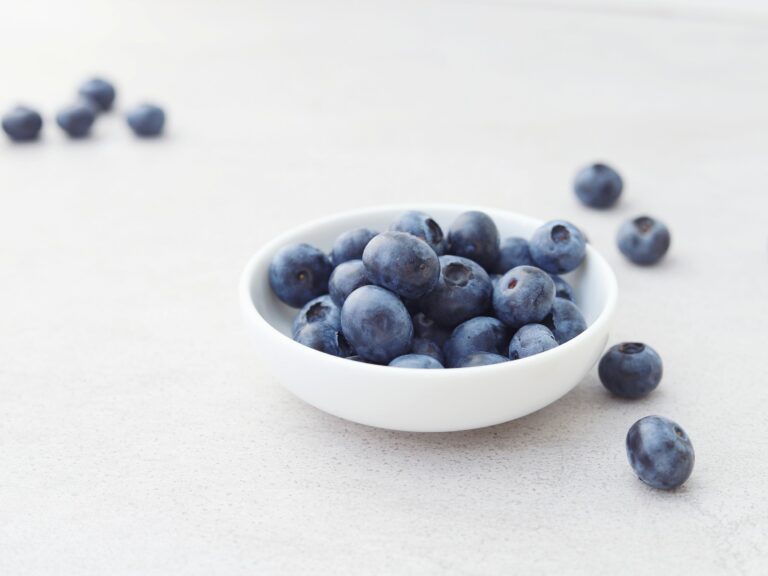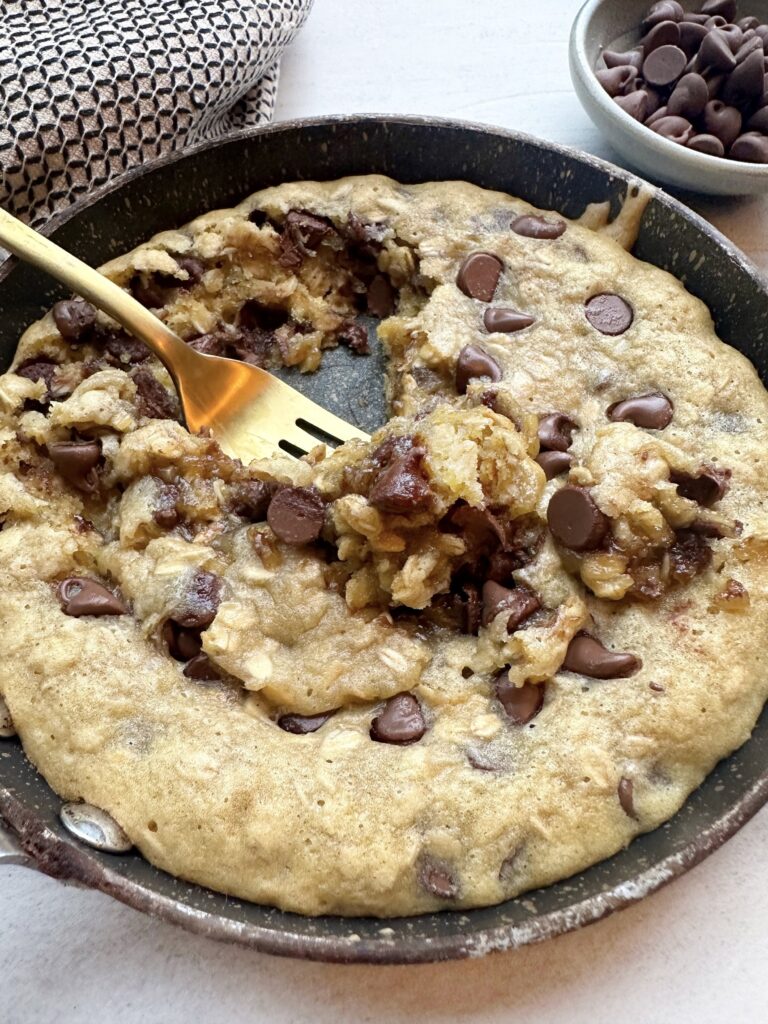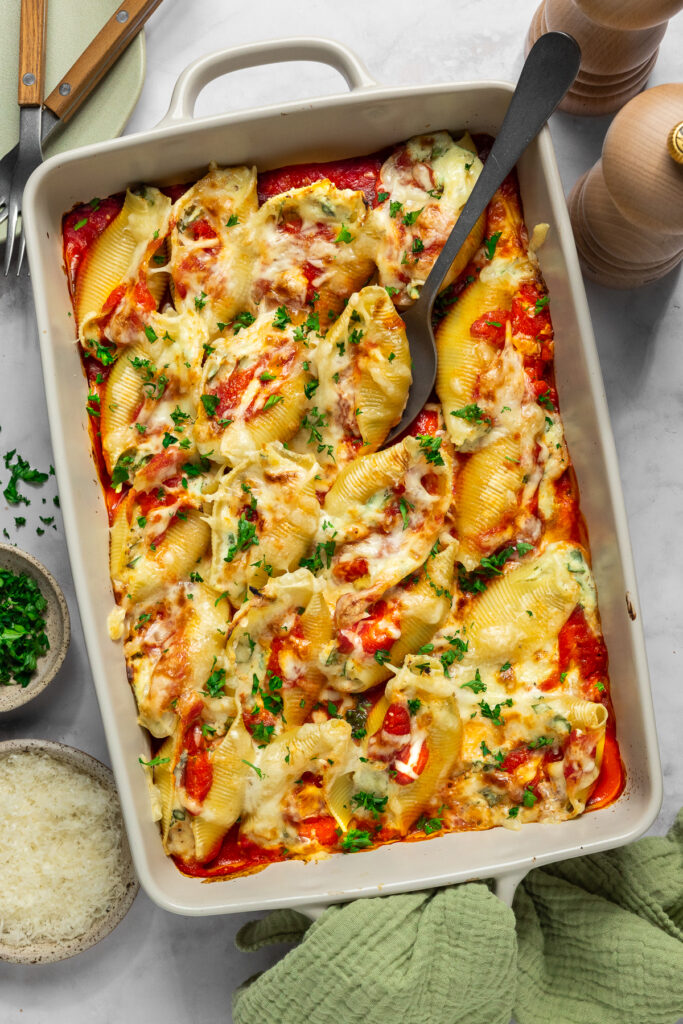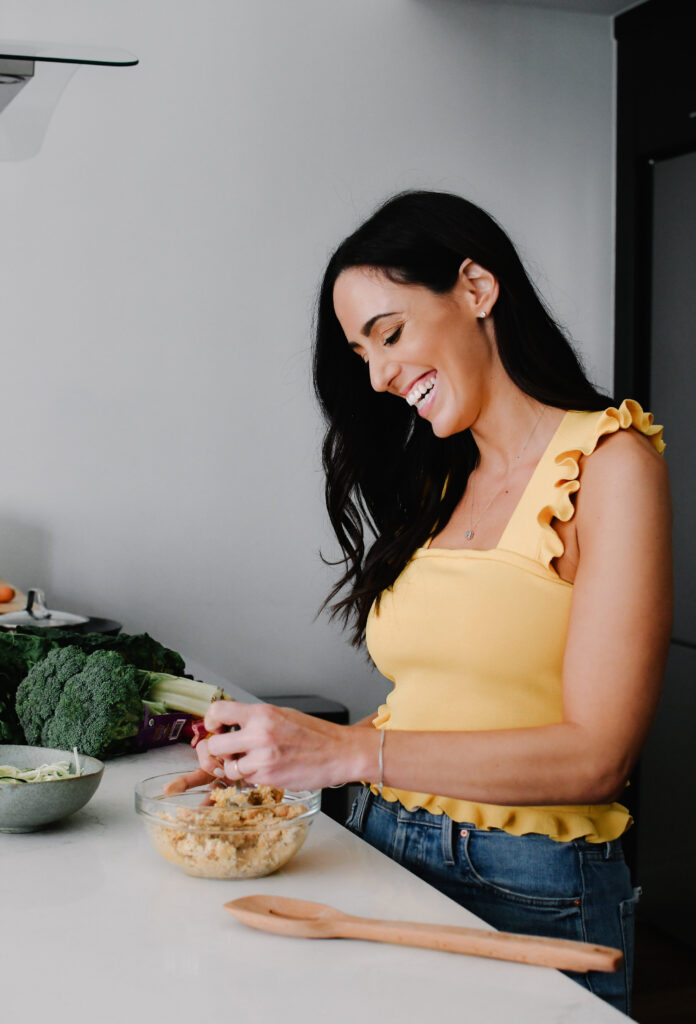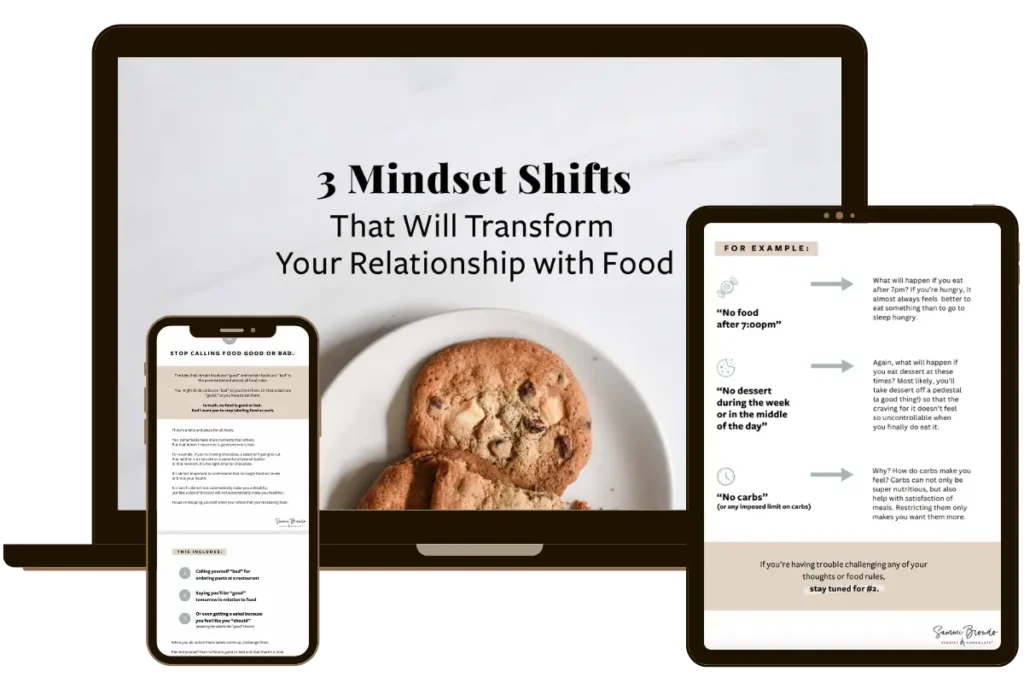
This is a question that I get all the time. And it’s a really important nuance that’s often overlooked in the realm of general “all foods fit” messaging.
Here’s what “all foods fit” should really say: all foods fit except for ones that you medically (or for another valid reason) need to avoid.
Of course, when you’re working on your relationship with food, this really is very nuanced (how often can I use this word? We shall see!). Because, while there are very valid reasons to avoid certain foods, a lot of times, the lines also get blurred between needing to avoid a food medically vs. feeling like you must avoid a food because of a past restrictive mindset.
Below, I’m walking through different scenarios and how to go about them.
Hopefully, this helps you determine if a food avoidance is necessary. And if so, how to navigate that avoidance while still working towards food freedom and a healthy relationship with food.

What about foods that must be avoided for allergies and religious reasonings?
This is important: if you are allergic to food, do not eat it.
I know that may sound like common sense, but I also feel like that messaging gets thrown to the wayside in a lot of “all foods fit” content (my own very much included!). That’s because quick messaging is meant to be general, and unfortunately, can’t always cover those important details.
But, if you’re allergic to any food, then it of course does not fit into your diet.
When you see all foods fit messaging, simply try to tweak it to work with your allergies. For example, if you’re allergic to nuts, can you swap for sunflower seed or pumpkin seed butter? Can you work on including these foods with unconditional permission so that they feel allowed and don’t feel like “trigger” foods?
Similarly, if there’s a food you avoid for any religious reason, this of course does not fit either and is another very valid reason to avoid a food.
For example, avoiding red meat because it goes against your religious beliefs is not the same as restriction.
And just like with allergies, simply work on swapping with other alternatives – like fish or tofu – and creating an “all foods fit” mindset with those.
I know it can feel triggering to have to cut out any food. Any time a food is restricted, it causes us to want it more.
But, by working on including all foods otherwise, plus also eating alternatives that feel satisfying to you, we can help tweak this mindset.

But my doctor told me not to eat X food for X reason, what should I do?
While this is super individual, it’s also a time that I highly recommend working with a dietitian.
Of course, there are medical reasons to avoid or limit certain foods, but in general, a dietitian can really help you pinpoint if foods actually need to be avoided, so that you can include as many foods in your diet as possible.
For example, you do not need to totally eliminate carbs if you have diabetes. In fact, you shouldn’t. Instead, you should be eating a consistent amount of carbohydrates during every meal, every day.
If you received vague advice telling you to just “cut carbs,” I understand your confusion! Ask your doctor if she can recommend a dietitian who works with diabetes to give you further guidance.
Similarly, maybe your doctor told you to avoid X foods because of stomach aches or “gut issues.”
I obviously don’t want you to have stomach aches, but here’s something important to know: many gut issues often begin to resolve when we heal our relationships with food.
Having a difficult relationship with food makes eating stressful, and stress while eating impacts our gut and our digestion. So many times, working on your relationship with food helps a lot of those gut issues too.
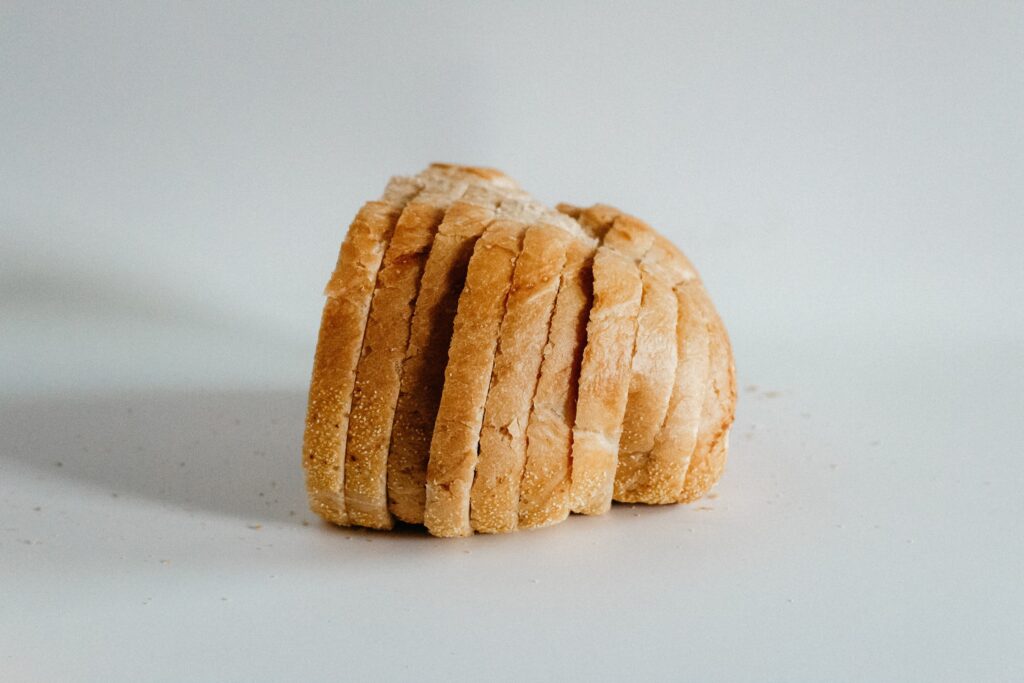
Again though, this is very general and another time that I highly recommend working with a dietitian who can help pinpoint exactly what, if anything, needs to be cut out.
If you get an upset stomach after eating, a dietitian can help you figure out exactly what food is causing it – and maybe even why – so that you know how to approach the situation instead of simply cutting out entire food groups.
It should never be the goal to have to cut out any food or food group entirely. And, if you work with a dietitian to look at your individual needs – instead of a vague “cut out this entire food group” – it can help you to include as many foods as possible in your diet.
And at that point, any food that still that’s avoided is probably a medical necessity and not an unnecessary restriction.
I avoid X food for a different reason, how do I know if it’s considered restriction or not?
Ultimately, it comes down to your reasoning behind avoiding a certain food.
Do you avoid animal products because you ethically don’t believe in eating them? That’s a really fair reasoning and isn’t restriction.
In this case, keep to your beliefs while finding suitable replacement for the animals products you choose not to eat.
Or do you avoid animal products because, subconsciously, you’re afraid to leave your vegan food rules behind? Or because that food blogger only eats vegan cream cheese and it seems like the “right” thing to do?
Only you can answer this. And please know, if it’s the latter, don’t feel any shame about that all. Food rules are so hard to leave behind. Especially those ones that become so ingrained in us or seem like they’re things everyone else if doing (if you’re struggling with food rules, check out this blog post).
If you feel like you might be avoiding a food or food group based on restriction or food rules, I invite you to challenge yourself to slowly add that food back in.

If dairy is the culprit, one day, try swapping your dairy free cream cheese for a regular cream cheese for just one week. The next week, maybe try swapping dairy free cheese for regular cheese.
I don’t want to discount how hard this can feel to do, especially when diet culture and social media tells you that you “shouldn’t” eat certain foods.
Remind yourself that all foods are allowed with unconditional permission. Truly, no foods are good or bad. And in fact, you might find that you really enjoy some of the foods you had previously cut out.
Because allowing all foods *that you medically can eat* is the first step to a healthier relationship with food.
Here are a few more blog posts that I think might be helpful around this topic:
If Halloween Candy Feels Scary, Read This
I Want to Listen to My Body, But I’m Scared to Gain Weight
If I Allow All Foods Into My Diet, What if I Can’t Stop Eating Junk Food?
The Stress Free Way to Keep Trigger Foods in the House
Want more tips on creating an easy, sustainable healthy relationship with food? Check out my membership program, All Foods Fit, with 12 thorough lessons to teach easy ways to create a healthy relationship with food. Or, check out my e-book, 7 Days to Make All Foods Fit, to learn a step by step guide to create a healthier relationship with food in just 7 days.

